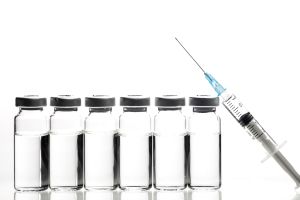17 May 2022
News
Ethics in the research response to COVID-19 - webinar recording now available
Our first webinar on 3 April attracted almost 600 listeners from 67 countries around the world.
Participants tuned in to hear three international experts discuss how research can be undertaken ethically during the emergency response to COVID-19.
The webinar was chaired by Hugh Whittall, Director of the Nuffield Council on Bioethics and the speakers were:
- Beatriz da Costa Thomé, a paediatrician based at the Preventive Medicine Department of the Federal University of São Paulo, Brazil. She was a member of the working group that prepared the recent Nuffield Council report on research in global health emergencies. Beatriz co-chairs the WHO working group on ethics and COVID-19.
- Jeffrey Kahn, Director of the Johns Hopkins Berman Institute of Bioethics in Baltimore, USA.
- Sue Tansey is an independent Consultant Pharmaceutical Physician working with small and medium sized companies in the pharmaceutical industry in the UK. Sue is a member of the Council.
Take home messages from speakers
- We should have hope that we will get past this.
- Collaboration will be vital in the research effort.
- Technology can be used to bring people together and create hope.
Presentations
Beatriz da Costa Thomé is a paediatrician based at the Preventive Medicine Department of the Federal University of São Paulo, Brazil. She was a member of the working group that prepared the recent Nuffield Council report on research in global health emergencies. Beatriz co-chairs the WHO working group on ethics and COVID-19.
Research ethics should be framed wider than the ethical review of research protocols. It is about the behaviour of everyone involved, such as funders, governments, and research committees. It is about fair collaborations between institutions, and the involvement of communities. Ethics should be seen as a framework to support research and protect potentially vulnerable participants.
The Nuffield report was built on evidence that was gathered from around the world. We asked whether an emergency was a good time to conduct research. The answer was yes, research is a key aspect of the response to an emergency. Our second question was whether ethical standards should be lowered in an emergency. The answer was no, and in fact ethical standards could be more important than ever at these times.
We suggest three ethical values that should guide research in a global health emergency. The first is equal respect for participants, which highlights the importance of community engagement in the design and conduct of a project. The second value is fairness. Sometimes fairness is left behind during international collaborations. The third value is reducing suffering. The research must be focused on reducing suffering in the communities affected by the emergency.
Drawing on existing guidance, WHO wanted to create robust, practical ethical guidance for the full range of researchers working on COVID-19. The resulting rapid response guidance highlights the importance of transparent and meaningful consent processes, and engaging communities in decision making. WHO has also published guidance for RECs to help them adapt to the current emergency, which includes the importance of avoiding duplication by researchers operating in different places.
We must learn from COVID-19 and ensure we are prepared for the next infectious disease emergency.
Jeffrey Kahn is Director of the Johns Hopkins Berman Institute of Bioethics in Baltimore, USA.
There is a scramble to find effective treatments and vaccines for COVID-19. In normal circumstances, a vaccine trial would take 18-36 months, which seems like an eternity at the moment.
Typically, animal models are used before any drugs are given to humans. Some of the early COVID-19 trials happening in the US are skipping this first step, which raises the question of whether ethics standards are being loosened. Early phase stage trials of COVID-19 therapeutics are being sped up, starting with low dose toxicity trials, and moving onto higher dose trials looking at efficacy.
Trials that involve healthy volunteers require particular considerations of safety. The participants are undertaking risks not for personal benefit, but for the benefit of others. As well as raising safety concerns, skipping animal testing might have commercial implications, as human trials would be conducted without a good understanding of how likely the drug is to be effective.
Some vaccine trials involve exposing the volunteer to the pathogen directly. This is done in malaria trials to see if the test vaccine has protected them. If not, the volunteer can be ‘rescued’ with therapeutics. This can’t be done with COVID-19 as there are no available therapies. It is likely that any volunteers in a COVID-19 vaccine trial would be left to be exposed to the virus through their everyday lives. Questions remain about how they could be cared for if they started to show symptoms.
When we have a vaccine, who should get it first? There will be limited supply and it will probably be expensive. Prioritisation would likely start with first responders – frontline health workers and emergency services. Next would probably be those at highest risk of infection and severe reaction. Then we might prioritise essential workers, such as those who ensure we have groceries, infrastructure and electricity. Then the vaccine can be made available to everyone else.
In New York City, therapeutic cocktails that include anti-malarial drugs are being given to COVID-19 patients in uncontrolled trials. These clinicians are not in a position to carry out controlled trials. The problem with using drugs experimentally in this way is that it might not result in any useful data.
Sue Tansey is an independent Consultant Pharmaceutical Physician working with small and medium sized companies in the pharmaceutical industry in the UK.
There are two very different populations that will be involved with research. Trials that are looking to develop a prophylactic vaccine will involve healthy volunteers. Very sick patients might be asked to take part in trials of therapeutics that treat the symptoms of COVID-19. These patients might be confused, unconscious and/or ventilated.
Healthy volunteers must be fully informed of the risks and potential benefits to society of the study. Any animal trials that have taken place beforehand, or not taken place, should be clearly explained. Volunteers should also understand that they might not be protected from contracting the virus after taking part in the study. They might be allocated a placebo and if they are given the test vaccine, it might not work. Any financial compensation should not be at a level that could be construed to be an inducement.
Comparing a test vaccine against a placebo could be ethical if the volunteers were in the 18-55 age group that are at a lower risk of severe symptoms and death. If this situation changes, then an option would be to compare immediate vaccination against delayed vaccination, as was done in some Ebola vaccine trials.
When testing therapeutics in already sick patients, it might not be possible to obtain informed consent from the patient. An ethics committee might approve seeking ‘deferred consent’, where the patient is entered into the trial and consent is sought later if possible. A legal guardian or relative could also give consent for the patient to enter the trial, as long as the risks and benefits were clearly explained.
Scientific standards, as well as ethical standards, should be retained in an emergency. Criteria for including a patient in a study should be strictly adhered to. It is best practice to compare a therapeutic against placebo. The possibility of receiving a placebo is a very important discussion to have with the patient or their family.
As we start to learn more about potential therapeutics for COVID-19, we might need to adapt study designs. WHO is already co-ordinating an adaptive study that will compare, sequentially, a number of potential therapeutics against a placebo. Hopefully, with collaboration between scientists, clinicians, industry and regulators, we will soon have effective therapeutics for COVID-19 and a prophylactic vaccine in the not too distant future.
Questions
Participants submitted 61 questions for the panel, not all of which were answered.
To what extent should universities be promoting access to research and giving up intellectual property rights?
This is the plea. There has been discussion between public and private entities to co-operate and be creative. We just need to be equitable about how much each of us lose.
There are existing research consortia to develop vaccines for neglected diseases which could be used as models, although this is the first time we have seen a truly global pandemic and research response.
Might the global co-operation we have seen in the research response to COVID-19 lead us to public benefit in a different way than we have seen before?
Yes. We are seeing collaboration between a range of actors, including between different companies.
Are we putting too much pressure on healthy volunteers if we skip through the early stages of clinical trials for vaccines?
We want to make sure this is not the case. The first volunteers for trials in the US have just started to be interviewed. Reassuringly, they seem fully aware that they are undertaking uncertain and potentially great risks. But there is still the question of how much risk you can push on to consent. There is still a limit on acceptable risk. The challenge is knowing where the line is.
Skipping early stages of trials might be justified if part of the vaccine has been used previously in humans. A practical issue is the shortage of non-human primates in which to conduct pre-clinical trials. Sharing data between companies will help reduce the need for animal testing.
How do we manage community engagement in an urgent situation and where so many of us are in lock down?
There are still some ways of engaging communities, although maybe not in the way we would like. We are seeing researchers take advantage of social groups that already exists, such as patient groups that meet regularly. We can take advantage of technology and social media.
How this is going to play out in low and middle income countries is going to be important and something we are looking to make the focus of a future webinar.



Share